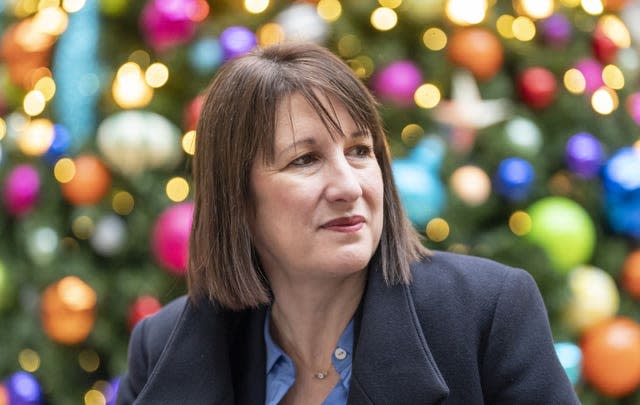Cabinet ministers have been warned they must find more savings in their departments as the Chancellor said “every pound” of Government spending will be scrutinized in a major budget review.
Secretaries of State are being told that any spending that does not contribute to one of Labour’s “priorities” must be cut as Rachel Reeves promises to wield an “iron fist against waste”.
Letters sent by Chief Secretary to the Treasury Darren Jones will ask departments to prepare for “difficult” spending decisions to restore confidence in the Government’s handling of public finances.
Every pound of departmental spending will face a “line-by-line review” involving external financial experts from banks and think tanks to ensure it represents good value for money, the Treasury said.
The Chancellor will launch the next round of government spending on Tuesday and is expected to warn departments that they “cannot operate as usual as they review their budgets for the coming years”.
He will insist that areas focused on Prime Minister Sir Keir Starmer’s “turnaround plan”, which includes targets to improve living standards across the country and build 1.5 million homes, must be prioritised.
Ms Reeves said: “By totally reconfiguring the way the Government spends money, we will be able to deliver our change plan and focus on what matters to workers.
“The previous government allowed millions of pounds of taxpayers’ money to be wasted on poor value for money projects. We will not tolerate it; I said that I would have tight control over public finances and that means having a tough hand against waste.
“By reforming our public services, we will ensure they live up to modern demands, saving money and providing better services to people across the country. “That is why we will inspect every pound of Government spending, so that it goes to the right places and we put an end to all waste.”
Under the Treasury’s plans, departments will ensure budgets are scrutinized by “challenge panels” of external experts, including former senior managers at Lloyd’s Banking Group, Barclays Bank and the Co-operative Group.
These panels, which will also involve think tanks, academics and the private sector, will advise on what spending “is or is not necessary,” the ministry said.
The Treasury said work has already begun, and an evaluation of the £6.5 million spent on a scheme that placed social workers in schools found “no evidence of a positive impact on social care outcomes”.
“Departments will be informed that where spending does not contribute to a priority, it should stop,” he said.
“While some of these decisions will be difficult, the Chancellor is clear that the public must trust that the Government is eliminating waste and that their taxes are spent on their priorities.”
Ms Reeves had already announced efficiency and productivity savings of 2% across all departments in her autumn budget, as she seeks to put the public finances on a firmer footing.
In a speech in east London, the Chancellor of the Duchy of Lancaster, Pat McFadden, hinted at greater pressure.
“In the Budget, the Chancellor called for 2% efficiency and productivity savings across all departments, with more to come,” he said.
“As we launch the next phase of the spending review, at the heart of it must be reforming the State so we can do a better job for the public.”
The Liberal Democrats accused the Government of “missing opportunities and making counterproductive decisions” in the Budget, and urged it not to “make the same mistakes” in the spending review.
The party’s Treasury spokeswoman Daisy Cooper said: “Leaving the social care sector in crisis is a false economy that will only put people at risk and damage public finances.
“The Government cannot afford to make the same mistakes in the spending review that it made with the Budget, wasting opportunities and making counterproductive decisions.
“The Government must use this Review to invest and save, taking into account the billions of pounds that could be saved in the NHS budget by investing.”


